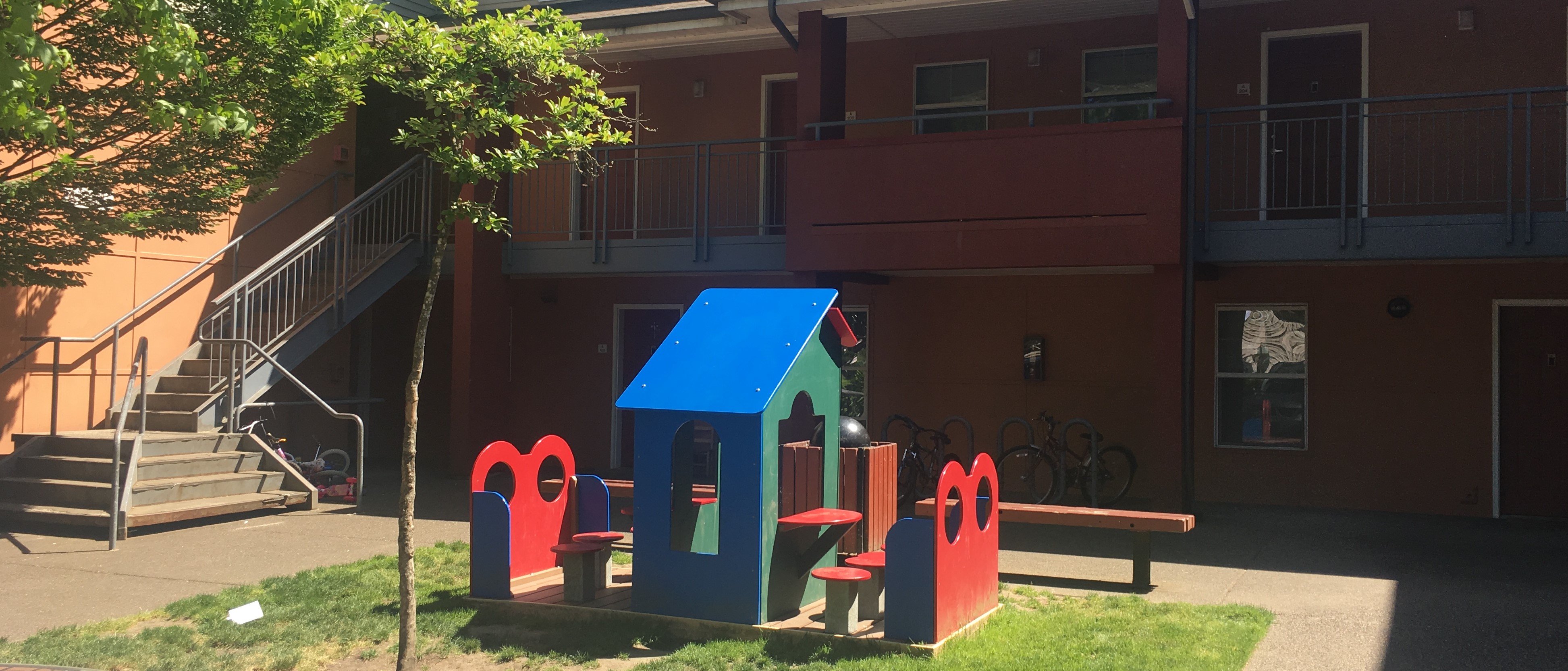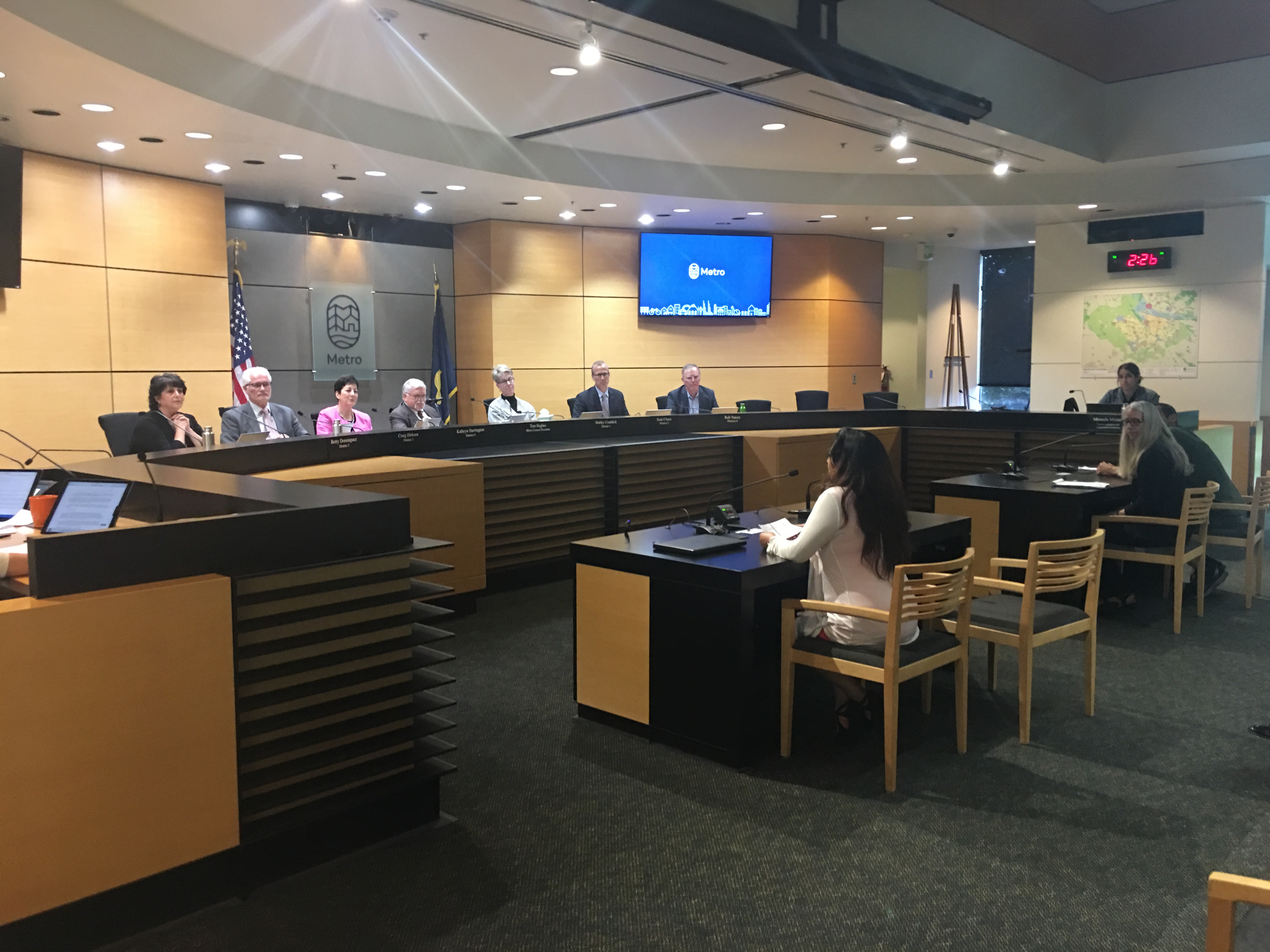
Two affordable housing measures are on the ballot. Here’s how they’d affect Hillsboro.
This November, residents of the Portland Metro Area—which includes cities in Washington, Multnomah, and Clackamas Counties—will find two separate measures on their ballot related to affordable housing. While Measure 102 and the Metro housing bond will each be voted on separately, they are most efficient and impactful when implemented together.
Measure 102 is an amendment to Oregon’s constitution that would allow housing bonds and other affordable housing funds that come from the government to be used by private (usually) nonprofit affordable housing developers. Without this amendment, all affordable housing funded through bonds has to be built and owned by the government.
The thinking behind Measure 102 is that nonprofit developers are better equipped and able to build, maintain, and operate affordable housing. Portland’s 2016 housing bond, for example, financed 1,300 units of affordable housing, but the dollars would have stretched a lot further if private organizations were allowed to use those funds.
Measure 102 would also be a boon to smaller towns like Forest Grove where housing is starting to become unaffordable for some. Rural governments often don’t have the capacity to build and operate affordable housing, while private nonprofits would.
There’s not a lot of opposition to Measure 102. Both the Democratic Governor Kate Brown and her Republican challenger State Representative Knute Buehler are for the measure, demonstrating how much bipartisan support it has. Ballotpedia doesn’t list any arguments against it.

The more controversial piece of this affordable housing solution is the Metro housing bond. On June 7th, before an overflowing room full of people wearing green “HOUSE THE PEOPLE” T-shirts, the Metro Council voted to refer a $652.8 million housing bond to voters. Dozens testified in support of the bond, with a few voices raised against it as well, before the Metro Council made their decision.
Metro’s estimates show that this bond has the potential to build or preserve approximately 3,900 affordable units if Measure 102 also passes, or 2,400 units if Measure 102 fails. This means housing for up to 12,000 people if both measures are successful.
The bond is funded by a raise in property taxes of 24 cents per $1,000 of assessed property value. For the median homeowner in Hillsboro, who owns a house worth about $365,000, and has had the good fortune to see their property values increase over the last few years, the monthly cost would be around $7.50.
The affordable homes would mostly be built for households making less than 30% of the region’s median family income (around $24,000 for a family of four in Washington County.)
What does this mean for Hillsboro? Well, about 34% of the new or renovated affordable housing units will be in Washington County. According to a representative of the YES for Affordable Housing campaign, the City of Hillsboro can expect to see $62 million. Throughout the Metro area, local dollars will stay local, and be distributed by local housing authorities.
The arguments for the bond are pretty straightforward. Supporters cite the growing rate of homelessness (especially among children), the skyrocketing cost of rent, the number of people forced to commute an hour or more a day because they can’t afford to live near their job, and the three year long waitlists for affordable housing units in Washington County.
Families of color are more likely to be affected by the Metro area’s housing and affordability crisis, and more likely to be cost-burdened (paying more than 30% of their monthly income on rent.) Hillsboro City Councilor Olivia Alcaire lives in Ward 3A, where Hillsboro’s highest concentration of low-income families and communities of color are located, and said that perspective has only strengthened her support of the housing bond and constitutional amendment. “Housing stability can transform people’s lives and is one way to lift them out of poverty and oppression,” she said. Many other influential leaders have added their names in support of the housing bond, including Governor Brown.
According to the Willamette Week, Washington County Chairman Andy Duyck has come out in opposition to the bond, questioning its impact and price tag. State Representative Knute Buehler does not live in the Portland Metro Area, but has also spoken in opposition.
While the bond will not completely erase the region’s need for affordable housing (opponents say it may only be a “drop in the bucket”), supporters argue that the opportunity to house up to 12,000 people is worth the small increase in property taxes.
“The bond would potentially mean $170 million for Washington County. That is a lot of money, no matter how you slice it, for a fairly modest investment from property owners each year,” said Nathan Teske, Executive Director of Bienestar, a nonprofit affordable housing developer in Washington County. “We believe an affordable place to call home is the foundation to many other good incomes in life.”
In a speech at the Housing Oregon Annual Awards Gala in early September, Metro Councilor Sam Chase, who had devoted much time and energy to making this legislation a reality, stressed the idea that the Metro housing bond is a true regional solution, and that only by working together as an entire region, can we start to tackle the problem of affordable housing.
Sarah Kay Moll is a local author and the grantwriter for a nonprofit affordable housing developer.
